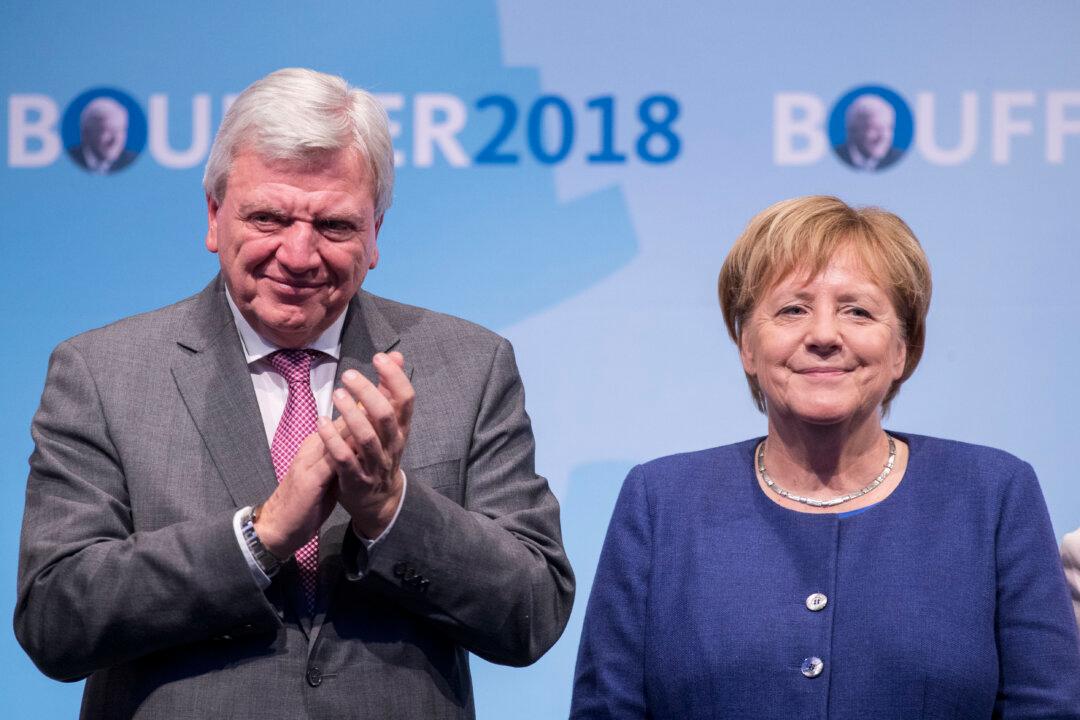BERLIN—Angela Merkel told her conservative party on Oct. 29, that she intends to step down as its leader but remain Germany’s chancellor following a pair of state election debacles, German media reported.
Merkel had previously indicated that she planned to seek another two-year term as leader of her Christian Democratic Union at a party congress in December, but appeared to be moving quickly to acknowledge pressure for renewal.





